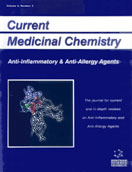Abstract
Interferon g (IFN-γ) is a regulatory cytokine with a broad spectrum of biologic activities and considerable clinical importance. It is considered to be a master regulator of the immune system. Many human diseases, including infections, cancer and autoimmunity, are associated with aberrant production of IFN-γ. Detection and regulation of IFN-γ production is an important clinical objective. Today, levels of IFN-γ in body fluids and tissues can be reproducibly measured by a variety of assays, including single-cell assays, that are discussed below. Strategies for inhibition of IFN-γ secretion depend on immunologic, pharmacologic or genetic interventions. Increasingly, molecular approaches based on inhibition of IFN-γ signaling pathways are considered for down-regulation of excessive IFN-γ production in various pathologic conditions.
Keywords: cytokines, natural killer (nk) cells, signaling, t cell receptor (tcr), inducible nitric oxide synthase (inos), macrophage, expression
 3
3

